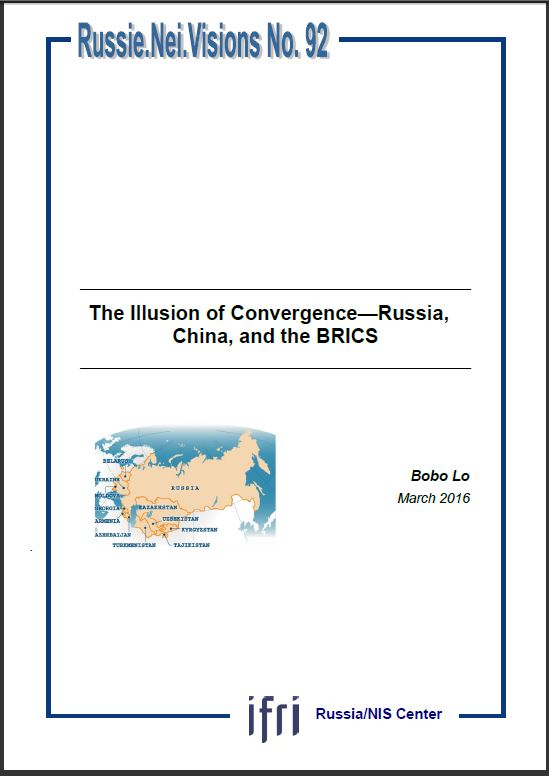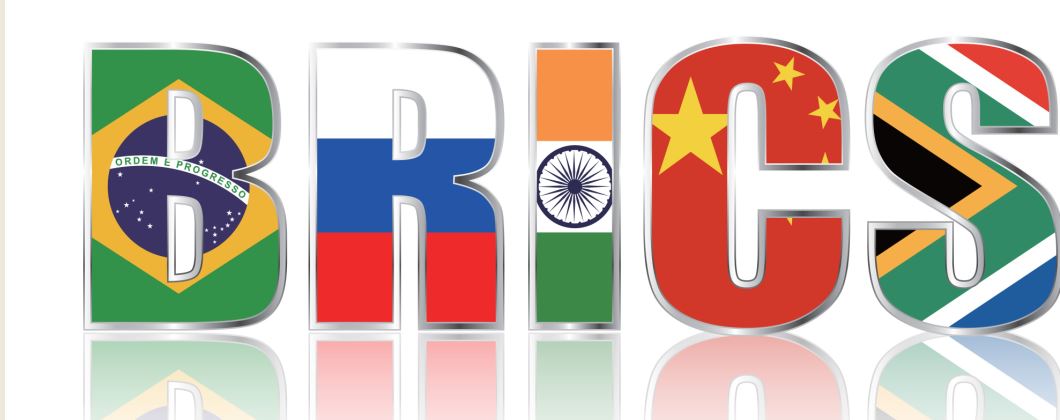The Illusion of Convergence—Russia, China, and the BRICS

The discussion about the BRICS (Brazil, Russia, India, China, and South Africa) opposes two narratives. The first considers they play an increasing role in the international relations as the West is loosing power; the other sees the BRICS as a charade. But the key role played by the interaction between Russia and China is an evidence shared by most experts.

Two narratives have dominated discussion of the BRICS (Brazil, Russia, India, China, and South Africa). The first asserts that this group of countries has become a major force in 21st century international politics, highlighting the shift of global power from the West. The second, by contrast, sees the BRICS as a charade, marked by the gulf between extravagant rhetoric and minimal achievement. The debate could scarcely be more polarized. Yet on one point there is convergence: the key to the viability of the BRICS framework lies in effective interaction between its two principal players, Russia and China.
Moscow and Beijing have assiduously promoted an image of likemindedness within the BRICS. But such efforts can hardly mask significant differences in attitudes and approach. President Putin identifies the BRICS as the foundation of a non-Western multipolar order in which Russia plays a central role. For the Chinese, however, it is a sideshow – only one among many instruments for advancing their interests in Eurasia and beyond. These contrasting perspectives severely limit the potential of the BRICS to offer an alternative model of global governance or act as an effective engine of international development. While the BRICS will remain part of the international landscape over the next few years, its relevance will come under increasing question.
Bobo Lo is an independent analyst. He was previously Director of the China and Russia Programmes at the Centre for European Reform; Head of the Russia and Eurasia Programme at Chatham House; and Deputy Head of Mission at the Australian Embassy in Moscow. He is an Associate Fellow of Chatham House’s Russia and Eurasia Programme, and an Associate Research Fellow with the Russie/NEI programme of the French Institute of International Relations (IFRI). Bobo Lo has an MA from Oxford and a PhD from the University of Melbourne.
Download the full analysis
This page contains only a summary of our work. If you would like to have access to all the information from our research on the subject, you can download the full version in PDF format.
The Illusion of Convergence—Russia, China, and the BRICS
Related centers and programs
Discover our other research centers and programsFind out more
Discover all our analysesThe Caspian Sea as an Emerging Energy Hub : Potentials and Limitations
This report analyzes the prospects of the Caspian Sea region — and its key actors except for Russia and Iran — becoming an important energy hub serving the needs of the European Union (EU).
The European Union's Strategic Test in Georgia
The political crisis brewing in Georgia is of an existential nature for the country. What is at stake is Georgia's future as a democratic and sovereign European nation (EU).
Commanders of Putin's Long War: Purged, Reshuffled and Disgruntled
The trend of reshuffling the Russian top military command in the course of a fast-evolving and far from successful war has progressed unevenly both across the Armed Forces’ structures and in time. The rationale for and timing of the abrupt cadre decisions made by Commander-in-Chief Putin often defy logical explanation, and the rare official clarifications are no more informative than the usual information blackout.
Russian Military Manpower After Two and a Half Years of War in Ukraine
In addition to a military victory in Ukraine, the Russian leadership is planning to build up sizable troop formations for a possible conflict with NATO in the Baltic region and the Kola Peninsula. In particular, current plans aim for the military manpower to grow by about 350,000, reaching a total of 1.5 million soldiers and commanders. In the context of the current conflict in Ukraine, this cannot be accomplished without a new wave of mass mobilization.












